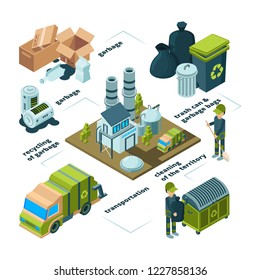Gain Know-How In Determining The Optimum Dumpster Dimension For Your Job To Attain Effectiveness And Cost-Effectiveness Via This All-Encompassing Guide
Gain Know-How In Determining The Optimum Dumpster Dimension For Your Job To Attain Effectiveness And Cost-Effectiveness Via This All-Encompassing Guide
Blog Article
Short Article Author-Galloway Fisher
When starting a project that needs a dumpster, the size you pick can greatly influence its efficiency and cost-effectiveness. Visualize having the perfect container that accommodates all your waste without being exceedingly huge or also tiny. domper de basura with recognizing the subtleties of your project and choosing a dumpster size that lines up with your particular requirements. So, prior to you make a decision, think about the elements at play to make sure a seamless waste administration procedure from start to finish.
Variables to Think about
When selecting the ideal dumpster dimension, there are several essential elements to consider.
First, consider the type of waste you'll be disposing of. Various products may require varying quantities of room, so comprehending what you'll be placing in the dumpster is critical.
Next, assess the quantity of waste you anticipate to generate. If you take too lightly the volume, you might require to make numerous trips to take care of every little thing, which can be bothersome and costly. On the other hand, renting out a dumpster that's too huge can result in unnecessary costs.
Furthermore, consider the space where the dumpster will certainly be placed. Ensure there's enough area for the dumpster to be supplied and gotten with no obstructions.
Finally, consider any weight limitations that might use. Going beyond the weight limitation can result in additional costs or even the refusal of service.
Dumpster Size Options
For picking the ideal dumpster dimension, it's essential to have a mutual understanding of the available alternatives. Dumpster sizes normally range from 10 to 40 cubic backyards, with variations in between.
A 10-yard dumpster is suitable for small jobs like a garage cleanout or a tiny renovation. If you're taking on a medium-sized job such as a kitchen remodel or a cellar cleanout, a 20-yard dumpster might be the appropriate choice.
For larger projects like a whole-house renovation or industrial building, a 30 or 40-yard dumpster could be better to accommodate the quantity of waste created.
When selecting a dumpster size, think about the amount and type of debris you expect to dispose of. It's much better to select a slightly bigger size if you're unsure to prevent overfilling. Remember, it's even more cost-efficient to lease a dumpster that fits your demands as opposed to having to order an additional one.
Matching Dimension to Project
Optimally matching the dumpster size to your task is essential for effective waste management. To establish the right size, consider the extent and nature of your job.
For tiny household cleanouts or remodellings, a 10-yard dumpster might suffice. These are generally 12 feet long and can hold about 4 pickup loads of waste.
For bigger projects like renovating numerous areas or clearing out a huge estate, a 20-yard dumpster might be better. These are around 22 feet long and can hold around 8 pickup tons.
If you're tackling a major building and construction task or commercial restoration, a 30-yard dumpster could be the very best fit. These dumpsters have to do with 22 feet long and can accommodate regarding 12 pickup truck loads of particles.
Matching the dumpster dimension to your task guarantees you have enough room for all waste materials without overpaying for extra ability.
renting garbage bin
In conclusion, picking the right dumpster dimension for your task is crucial for efficient waste disposal. By thinking about elements like the type and quantity of waste, room accessibility, weight limitations, and budget restraints, you can guarantee you have the proper dimension dumpster for your requirements. See to it to match the size of the dumpster to the range and nature of your task to prevent overspending on unnecessary expenditures.
